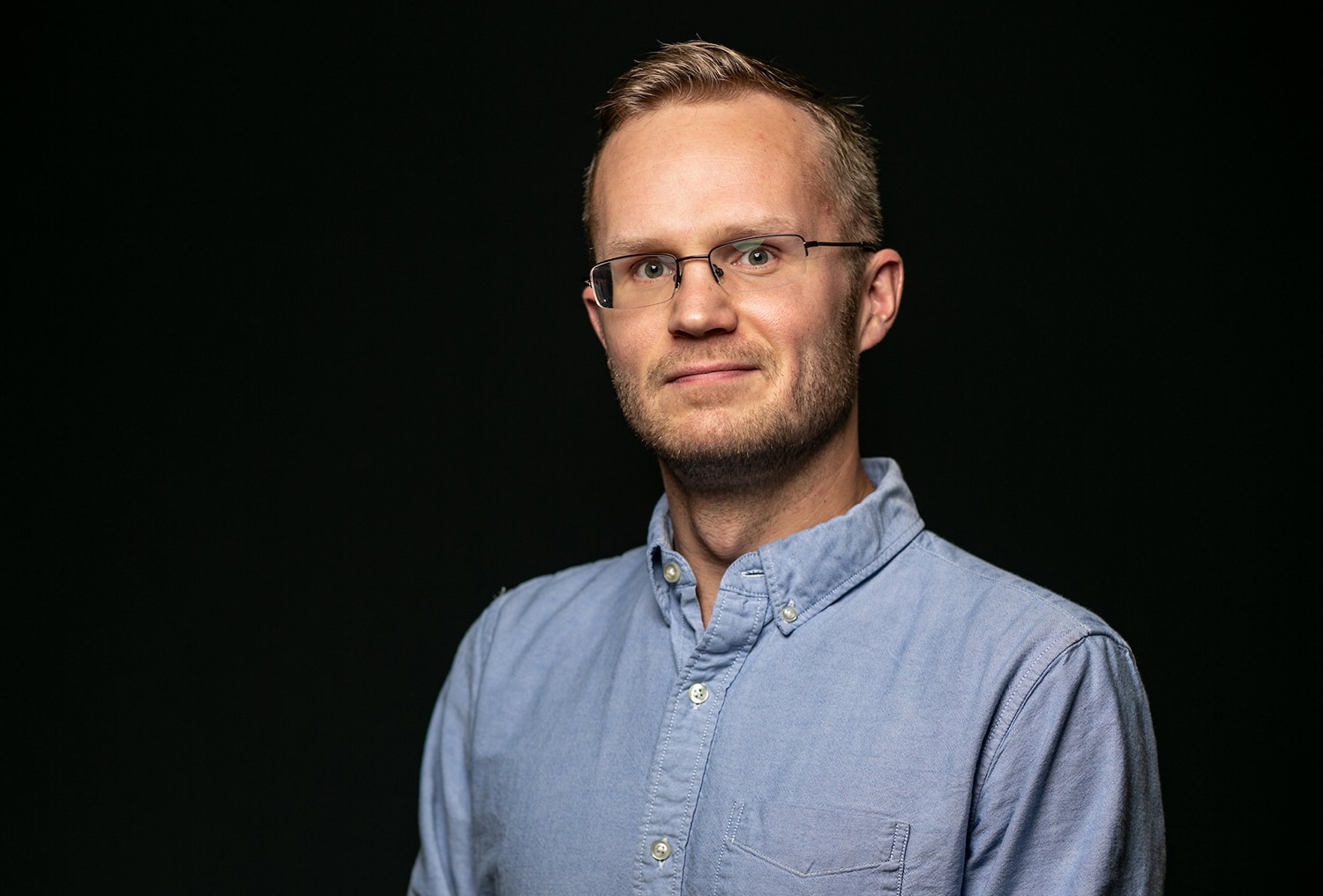(OSV News) Joseph Vukov is an associate professor of philosophy at Loyola University Chicago, where he is also an affiliate faculty member in psychology and Catholic Studies. He is the author of “Navigating Faith and Science” (2022) and “The Perils of Perfection: On the Limits and Possibilities of Human Enhancement” (2023). Vukov recently spoke with Charlie Camosy about the idea of morally licit human enhancement that comes in the form of transhumanism, and whether such licitness is even possible.
Charlie Camosy: Your new book title invokes “human enhancement.” How is this related to “transhumanism?”
Joseph Vukov: “Human enhancement” is a term that can be used to capture anything aimed at taking humans beyond normal, healthy functioning. So, that includes things like genetic engineering and new neurotechnologies. But the term “human enhancement” also includes more boring interventions. Your morning coffee; a new performance fleece; my bird watching binoculars — all of these aim to take our abilities beyond mere healthy functioning, so each counts as a human enhancement. Importantly, not all human enhancements are morally problematic.
It helps to think about a spectrum of moral responses to human enhancement, ranging from people who believe human enhancement is almost never morally good to those who say, “Yes, please, and more of it!” Transhumanists belong to the latter camp: While they don’t believe human enhancement is always good, they do believe it often presents us with good things.
There are some self-identified transhumanists out there, scholars who proudly accept the label. But I think it is helpful to think about transhumanism in a broader way. First, there are a lot of people who gladly endorse transhumanism without feeling the need to write scholarly articles about it. Last I checked, the transhumanism Reddit community has around 74,000 members. That’s a lot of transhumanists. Beyond groups like these, each of us — even if we find transhumanism repugnant — incubates transhumanist values. Every time we purchase a piece of new tech simply because it is new, every time we try a new life hack, every time we try a new supplement to boost life expectancy, we’re channeling transhumanist values.
Camosy: OK, let’s break it down. What would be a mistaken way to pursue human enhancement?
Vukov: We go wrong in our pursuit of human enhancement when we do it in a way that ignores rather than supports our humanity. One example: the aim to live forever. I’ve written lately about HereAfter AI, a company that aims to use AI to replicate deceased loved ones. Not quite eternal life, but a simulacra of it.
Other companies aim for actual eternal life, or at least longer lives. Cryonics companies will freeze you in hopes of eventually thawing you out for ever after. The company Nectome wants to preserve memories permanently, immediately following euthanasia — a kind of warped resurrection. Sam Altman, CEO of ChatGPT’s parent company, OpenAI, was an early supporter. Altman also backed a company called RetroBiosciences to the tune of $180 million. This company aims for less than immortality — simply an extra 10 years.
From a Catholic perspective, there are some glaring moral problems here — the euthanasia involved in some of the processes being an obvious one. But beyond these problems, the whole enterprise is itself morally problematic. Humans are not meant to live forever. We can hope for an eternal life with God, but part of our fallen human nature includes morality. Moreover, it isn’t clear that a longer life is always a good thing. The saints, whom we aim to emulate, often had their lives cut short. St. Ignatius Loyola likewise prays for indifference when it comes to living a long life or a short life — what matters is not the length of one’s life, but rather whether that life is used to praise, reverence and serve God.
Camosy: Some might say: “Keep the eyes on God and go forward,” but what are some of the moral pitfalls that could emerge from embracing transhumanism in a broken world?
Vukov: There are quite a few.
First, we should worry about our true motivation in pursuing any transhumanist projects. Immanuel Kant, who reflected deeply on the nature of human action, thought it was nearly impossible to confidently identify our true intentions behind an action. We often trick ourselves, telling ourselves we act for one reason, when in fact we are motivated by something else altogether. I think that’s true, and that we should be especially mindful of it in the context of pursuing human enhancement. We can tell ourselves that we are pursuing enhancement for the glory of God when really we are doing so for our own glory.
That’s relevant to a second consideration. As I’ve already mentioned, transhumanism is often motivated in part by the idea that humans can achieve perfection (or something like it) on our own power. That’s hubris, and clearly clashes with the Christian outlook — for Christians, humans can achieve goodness (and ultimately perfection) only through God’s grace. Now, I think things do get a little messy here. There’s nothing wrong with aiming to better oneself, and part of human nature includes acting creatively and constructively within nature. So it isn’t as simple as saying that any form of human enhancement transgresses moral boundaries. Yet transhumanism often pursues enhancement projects in a way that bloats our role in creation and aims to usurp God’s.
Finally, transhumanism often simply misses the point of human existence. In a broken world, the saccharine promises of transhumanism can seem to capture worthwhile goals: longer lives, smarter workdays, more efficient hour-to-hour living. For the Catholic, these things can have their place, but none are deeply desirable. Praising, reverencing and serving God; serving one’s family and the most vulnerable among us; participating in the sacraments; cultivating a meaningful prayer life — those are good for us, and, we believe, truly desirable. This may be one of the most problematic aspects of transhumanism. It holds up flashy projects that initially seem exciting and good, but on reflection, are not deeply desirable. So one of the biggest problems with embracing transhumanism is that we can end up structuring our lives around projects and pursuits that we don’t, at the end of the day, even really want.
Camosy: What would be a kind of human enhancement that you think would be legitimate to pursue?
Vukov: As I mentioned earlier, the cup of coffee, performance clothing, binoculars — they all count as enhancements. That’s a start to your list of human enhancements that are legitimate to pursue: the ones many of us use every day.
But if you were to ask me about the “edgier” forms of enhancement — I believe these can be legitimate at times as well, as long as we have our priorities set right.
As Catholics, our priorities should be in line with what St. Ignatius identified: to praise, reverence and serve God. But if we’ve got our eyes set on this goal, with the proper bumpers put in place, human enhancement might find a place in our lives. Might we not use novel genetic techniques (in morally appropriate ways) to make us more resilient to disease? Or bump the IQ of a nonprofit worker so she can discover a better system for distributing essential resources? Or use ChatGPT to compose emails efficiently so you can spend more time with your family?
St. Ignatius taught that we ought not knock wealth or health any more than we should run from poverty and sickness. What’s important is keeping our eye on our praise, reverence and service of God, and on our nature as human beings. Stay in those lanes, and human enhancement may very well find a place in our lives.
Camosy: Do you think there is a general approach to these ideas and practices that one could describe as Christian, or even as specifically Catholic?
Vukov: Yes, I call it the fallen dignity view. There are two ideas here: first, the idea that all humans are fundamentally equal; second, the idea that humans fall short of perfection. The two views, taken together, place bumpers on our pursuit of human enhancement generally and cast suspicion on transhumanism specifically.
First, the idea of basic human equality keeps us from elevating certain features over others. Transhumanism turns on the idea that a smarter, longer and more efficient life is more valuable than one that is less intelligent or shorter or inefficient. But the idea that humans are fundamentally equal undermines that way of thinking. According to the idea of fundamental human equality, humans are valuable because of our intrinsic dignity, not any feature we possess.
Second, the idea of human fallenness encourages us away from the pursuit of human perfection as transhumanists pursue it. Humans can’t achieve perfection through our own power. It would be hubris to suppose otherwise.





